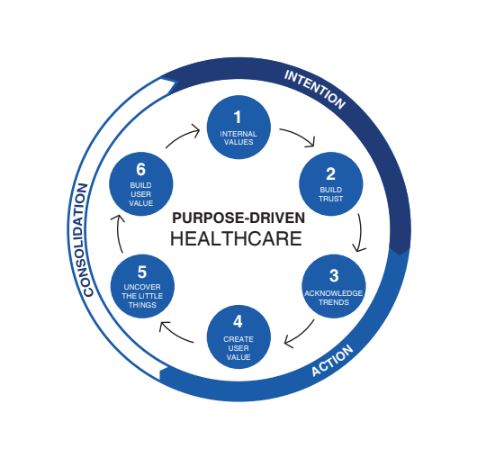
How to Roll Out Effective Company Frameworks in a Hospital
A hospital’s company-wide frameworks act as significant indicators of its priorities. They are a set of actions or procedures that everyone must follow in the same way. Effective company-wide frameworks ensure that all hospital operations run efficiently and prioritize patient care. However, rolling out company-wide frameworks effectively is not an easy task. It requires proper planning, a comprehensive hiring approach, intentional team development, and feedback and performance mechanisms. In this blog, we will discuss the key areas to train middle managers to ensure effective roll out of hospital-wide frameworks.
Foundations and planning for goals and resources:
Foundations and planning for goals and resources are crucial in ensuring that the hospital promulgates its frameworks effectively. Middle managers should be trained to set clear goals and align them with available resources. They should ensure that their teams understand the hospital’s strategic plans and can contribute to achieving the set targets. This training will enable them to monitor and track progress regularly.
1. A comprehensive hiring approach:
A comprehensive hiring approach is essential to ensure that employees hired are the right fit for the hospital. Middle managers should be trained to identify the qualities and characteristics that align well with the hospital’s frameworks. They should be trained to interview potential employees according to their skills, experience, and values. This way, the hospital can hire individuals who align well with its priorities and ensure effective promulgation of the frameworks.
2. Intentional team development:
Intentional team development is crucial in ensuring that all teams work together towards a common goal. Middle managers should be trained to identify areas where their teams lack skills and provide training to fill the gaps. They should also be trained to motivate their teams, encourage communication, and foster a collaborative work environment. This training will ensure that all teams work together to achieve the hospital’s objectives.
3. Feedback and performance mechanisms:
Feedback and performance mechanisms are crucial in monitoring progress towards achieving the hospital’s frameworks. Middle managers should be trained to provide regular feedback to their teams and evaluate employee performance. They should identify areas that need improvement and provide training to address gaps. This training will ensure that the hospital’s frameworks are continually improved, and all employees are aligned with its priorities.
We also recommend being clear on the intended outcomes:
I. Improved User Experience:
Improved user experience should be a top priority for any hospital. The training should entail customer service training for all staff (patient-facing then back-office -> same page) (customer = patients, VMO’s; each other). This training will ensure that all staff members provide quality care to patients and create a positive hospital experience for them.
II. Improved Efficiency:
Efficiency is essential in the hospital environment. Middle managers should be trained to implement patient flow and project management, keeping in view the available resources. This training will ensure that all operations are streamlined and coordinated for optimal efficiency.
III. Improved Quality and Risk:
Governance as innovation is the key to quality and risk management. Middle managers should be trained to manage risks and promote governance as innovation. They should be able to identify areas that need improvement and implement quality measures to ensure that the hospital provides quality care and minimizes risk.
Management training is also very effective in improving team satisfaction scores, as seen in the company Stripe, for example. Managers can coach employees through difficult personal situations, alongside work-related training such as up-skilling. This training can improve job satisfaction and employee retention rates.
Conclusion:
Effective roll out of hospital-wide frameworks is essential in ensuring that all operations run smoothly and prioritize patient care. Training middle managers in foundations and planning for goals and resources, comprehensive hiring approach, intentional team development, and feedback and performance mechanisms is crucial in achieving effective roll outs. Clarity on the intended outcomes, improved user experience, improved efficiency, and improved quality and risk management are essential training areas. Investing in management training can also improve employee job satisfaction and retention rates.
Prioritizing hospital-wide frameworks helps to ensure that every patient receives quality care.
Want to learn more? Send us an email for a pre-release trial of our new online course, designed to help new leaders and managers to hit the ground running, by learning what we wish we’d known when we started … [email protected]




